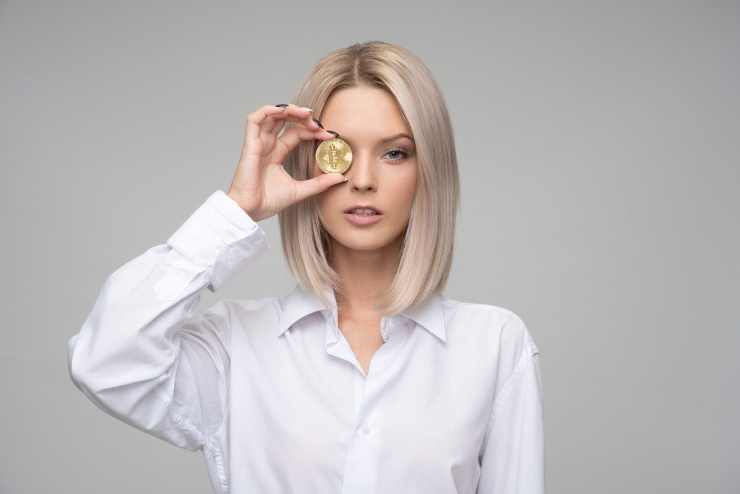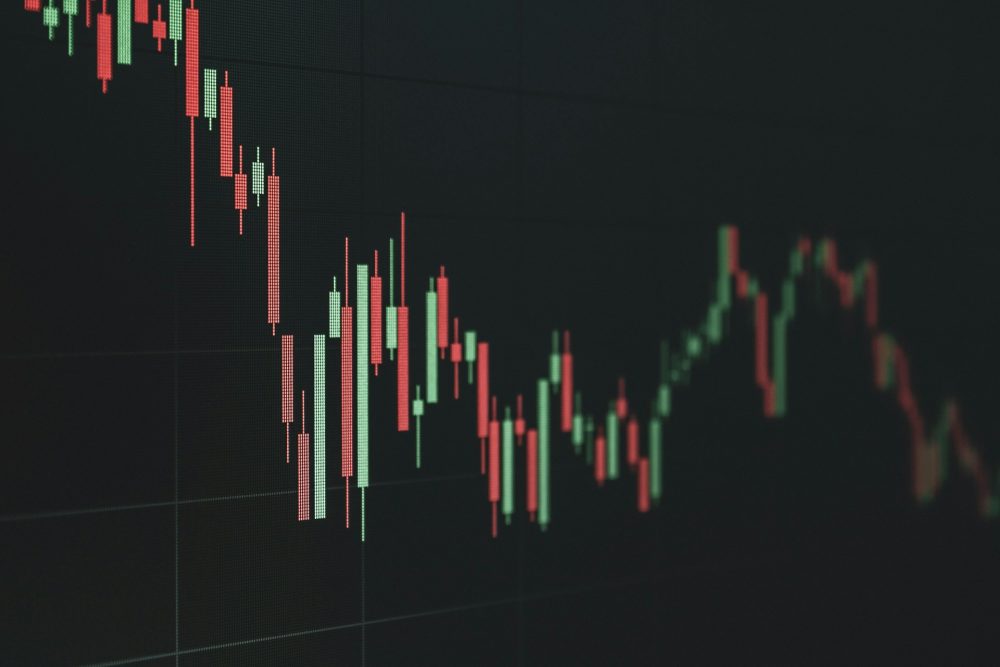Crypto
Russian Central Bank turns against bitcoin
The Central Bank of Russia recently came out against Bitcoin, claiming that their local ruble should be the “nation’s legal tender”, and the country may soon issue a ban on all cryptocurrency payments. Experts now have actual confirmation that Russia would support any legislative decision regarding a ban. Despite that, not just Bitcoin, but the entire cryptocurrency industry in Russia is in a bit of a legal limbo.

The issue of cryptocurrency legalization in Russia has remained unresolved for several years now but Bitcoin’s days may be numbered. A new initiative shown recently by regulators to push for a ban of token payments has seriously worried the local crypto community, given that the outcome is deeply uncertain.
Born2Invest is the aggregator app that collects all of the latest news on cryptocurrency as well as blockchain, the digital economy, Fintech, and all business and financial news. The application takes the most important and relevant information from popular sources.
Russia bans crypto trading
In November 2019, the Central Bank and Rosfinmonitoring were preparing an initiative to ban the use of cryptocurrency to pay for purchases in Russia. Regulators want to introduce criminal liability in terms of five to eight years for violation of this rule. It will also be impossible to transfer money in digital coins for specific services. Many Russian freelancers work in the cryptographic industry and are paid in tokens. Such activities may turn out to be illegal.
Despite the fact that Russian developments rarely affect the general course of the main cryptocurrency, this time it coincided that the next fall of Bitcoin occurred just after the media picked up news of the new initiative. On November 19, the day the news of the possible ban came out, the average market value of the first digital coin was estimated at $8,309, the next day the Bitcoin cost $8,206, and a week later $7,146.
BTC’s sustained decline
The decrease in the value of the BTC also occurred after it became known that the Russian Interior Ministry, together with other law enforcement agencies, should develop proposals for the seizure of cryptocurrencies and other virtual assets by the end of 2021. The news appeared in the media on November 7, when the main asset was estimated at $9,360, two days later the cost of Bitcoin fell to $8,804.
In parallel to these initiatives and proposals of the State Duma, the draft law “On Digital Financial Assets” (DFA) continues to be finalized. The document was first read in May 2018. On May 22, 2018, the State Duma passed three draft laws: “On Digital Rights”, “On Digital Financial Assets” and “On Investment Attraction Using Investment Platforms”.

Bitcoin’s future remains uncertain
At that time, this event had almost no negative impact on the value of the first cryptocurrency. On May 22, Bitcoin was worth $7,963, the next day the rate fell to $7,680, and by May 28, the value of the first cryptocurrency had already reached $8,805.
The second reading has already been postponed several times. In August this year, Prime Minister Dmitry Medvedev instructed the State Duma and the Ministry of Finance to adopt the draft law “On Digital Financial Assets” by November 1, 2019.
If the bans on Russian regulators come into effect, minor price fluctuations and a brief decline in the exchange rate of Bitcoin are not ruled out. However, these are not all negative consequences.
New crypto bans
Until the law on legalization of cryptocurrencies comes into force in Russia, no officially registered financial institution will risk dealing with cryptocurrencies. If Rosfinmonitoring and the Central Bank will forbid financial organizations to deal with digital assets, the domestic cryptographic industry will remain the domain of only individuals.
It is also possible that the new bans will only lead to the development of an illegal field in Russia. Thus, Anatoly Aksakov, chairman of the State Duma Committee on Financial Market, believes that it’s possible to prohibit the use of the cryptocurrency as a means of payment, but it’s going to be extremely difficult to actually enforce the decision in the next few years. He has repeatedly pointed out that Russian market players have already learned to bypass laws and regulations, and in any case, will use the cryptocurrency.
New bans often fuel interest in the digital industry. For example, Chinese investors, traders and cryptocurrency companies, after various tightening by regulators, continued their activities and found new ways to work with cryptocurrency assets. In addition, despite China’s ban on the commercial circulation of cryptocurrencies, the country remains an influential player in the global digital industry, an advanced mining and blockchain player.
__
(Featured image by madartzgraphics via Pixabay)
DISCLAIMER: This article was written by a third party contributor and does not reflect the opinion of Born2Invest, its management, staff or its associates. Please review our disclaimer for more information.
This article may include forward-looking statements. These forward-looking statements generally are identified by the words “believe,” “project,” “estimate,” “become,” “plan,” “will,” and similar expressions. These forward-looking statements involve known and unknown risks as well as uncertainties, including those discussed in the following cautionary statements and elsewhere in this article and on this site. Although the Company may believe that its expectations are based on reasonable assumptions, the actual results that the Company may achieve may differ materially from any forward-looking statements, which reflect the opinions of the management of the Company only as of the date hereof. Additionally, please make sure to read these important disclosures.
First published in РБК, a third-party contributor translated and adapted the article from the original. In case of discrepancy, the original will prevail.
Although we made reasonable efforts to provide accurate translations, some parts may be incorrect. Born2Invest assumes no responsibility for errors, omissions or ambiguities in the translations provided on this website. Any person or entity relying on translated content does so at their own risk. Born2Invest is not responsible for losses caused by such reliance on the accuracy or reliability of translated information. If you wish to report an error or inaccuracy in the translation, we encourage you to contact us.

-

 Markets2 weeks ago
Markets2 weeks agoGold’s Historic Surge and Sudden Crash Signal Volatility, Not Defeat
-

 Cannabis2 days ago
Cannabis2 days agoWhen a Cutting Becomes a Cannabis Plant: Court Clarifies Germany’s Three-Plant Rule
-

 Africa1 week ago
Africa1 week agoIvory Coast Development Plan 2026–2030: Investment, Growth, and Strategic Reforms
-

 Crypto5 days ago
Crypto5 days agoBitcoin Rebounds Above $70K as Crypto Markets Show Fragile Signs of Recovery
























